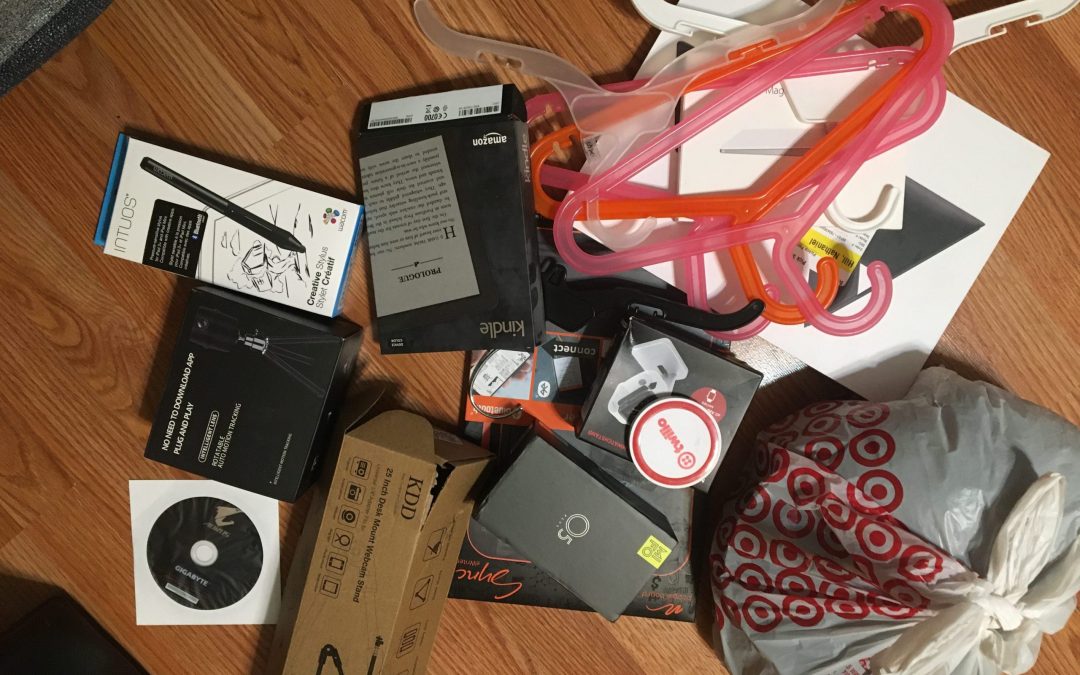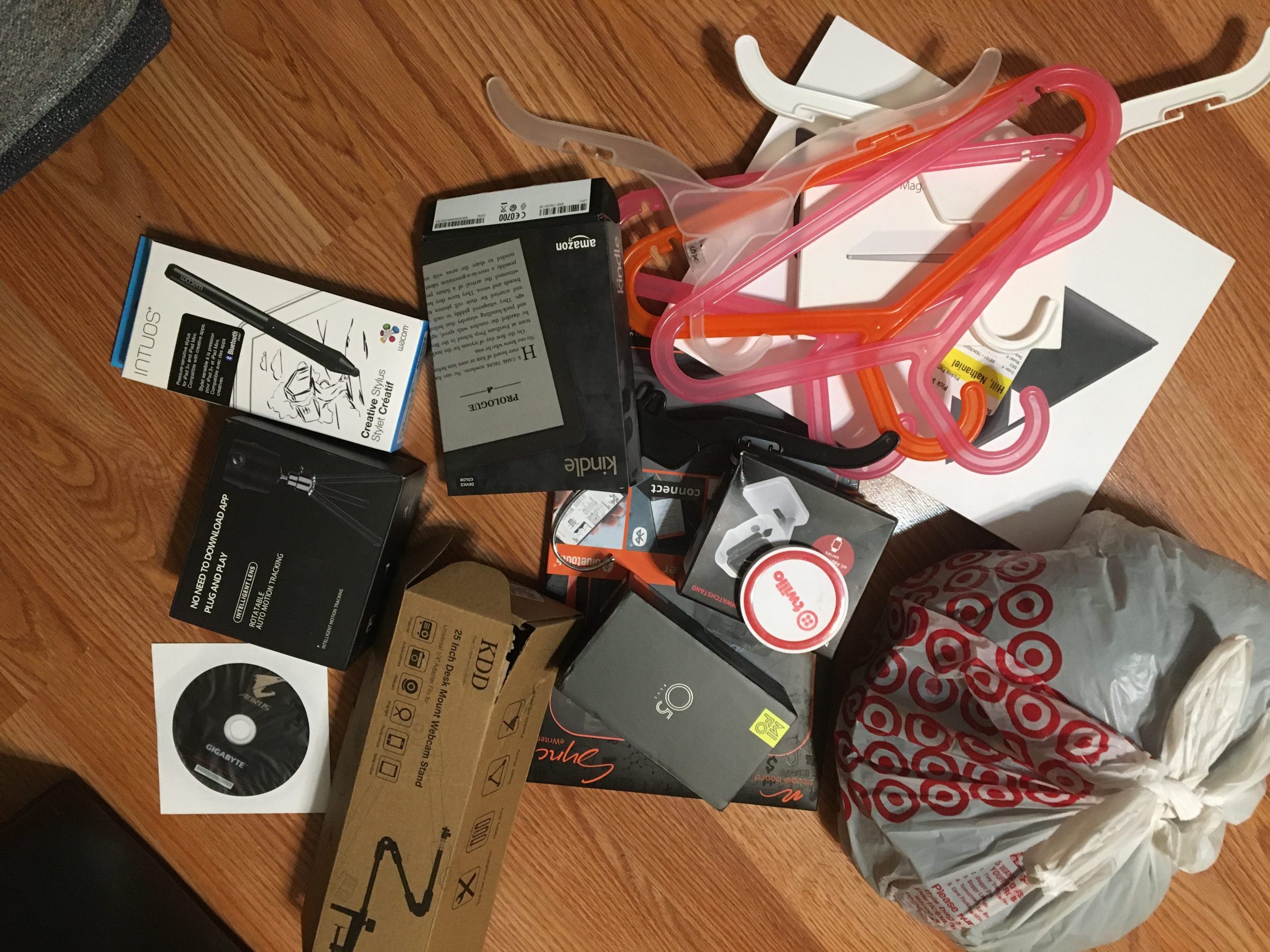
How the Pandemic Opened the Door to My Career in Tech
The 2020 coronavirus pandemic played a part in reducing the access gap for parents (with caregiving responsibilities), disabled people, and neurodivergent people in tech. I’m a member of each of those marginalized groups, plus some.
Tech’s quick transition to remote work for all created a sliver of an opening in a door I’ve been knocking on for years.
Landing your first full-time tech role is not a trivial task. Some of us have more barriers than others to overcome. It doesn’t make intuitive sense, but the timing of the pandemic was beneficial to my job search. I was helped by the more inclusive hiring and work practices that companies adopted as a matter of survival.
Working on a distributed team is no longer exceptional
When it became clear in early 2020 that it was no longer safe to work in close physical proximity, companies made the right decision to close offices and have their people work from home. Co-located teams that weren’t prepared for this shift had to get it together without the luxury of time to optimize the experience.
Companies kept hiring through the crisis. Because everyone who could went home, more junior employees and new hires joined the distributed workforce. It wasn’t exceptional anymore, it was table stakes.
My challenges were exceptional
I come from what tech culture is calling a “non-traditional” background. I’m a Black single-mother in my late 30s. I don’t have a degree at all and my primary job for the last 13 years has been “stay-at-home mom.” Those traits alone were enough to make me a lot different than the most sought-after job candidates, and the attributes I listed are just the broad categories of marginalized groups I belong to.
With a closer look, you could see that I was low-income, financially strained, and suffering the effects of untreated health conditions and undiagnosed ADHD. I was homeschooling my two school-aged children. As a single parent, that meant they would be a constant presence in my home, the same home I was hoping to make my workplace.
I didn’t show up at tech’s door empty-handed. I have been programming and building web pages for decades. I went to school, earned college credits and a certificate in Web Development in the early 2010s. In the most recent years, I learned modern web development as a self-directed learner (with some time in a coding school) and built communities with my peers who were also on a path to their first tech roles.
I never considered working a tech role from an office, not even 13 years ago when I started my certificate program. Remote work was the only option. I was confident that I could thrive while working from home. I even had practical experience as a developer on a distributed team thanks to The Collab Lab.
Finding a remote-friendly role for my first tech job was difficult. The positions that I qualified for were few and far between. Tech culture seemed to be telling me that this mode of working was a perk reserved for current employees and more senior candidates.
The Pandemic Opened a Door
The pandemic helped my job search situation by giving everyone a taste of the challenges I’ve been living with and working around for years.
Social expectations had to shift. We were all doing our best to navigate a deadly, airborne virus. This meant mass trauma. Knowledge workers rushed home before everyone knew exactly how that was supposed to work. Schools closed and parents had double-duty as employees and homeschooling teachers. We were all humans going through a difficult time – all of us in the same storm.
Pre-COVID, those were my exact conditions (except for the deadly virus part). Before the pandemic, I was enduring a personal storm while the weather was fine for others with the same aspirations I had.
I can’t imagine that hiring managers came across many people like me or in similar situations to mine. Not only was I a “non-traditional” candidate, but I also had conditions and challenges. Multiple people would have to look past those challenges with empathy and really want to give me a chance. I wasn’t an easy candidate to say yes to.
In a world where remote work wasn’t table stakes, I could be singled out as a person who was needier than most. Remember, it was remote or nothing for me. COVID changed that making me one of many with common needs.
We all experienced the pandemic at once. To use the storm analogy, some were better equipped to weather the storm than others, but we were all in it. We were dealing with sickness, death, trauma, and fear. People needed grace and understanding from one another. It’s easier to offer that to others when you have first-hand experience to draw from.
This climate provided the opportunity I needed. I was not okay and I was getting desperate. I needed the grace and accommodation that was suddenly and necessarily afforded to everyone. Nothing being normal made my abnormalities less prominent.
I had a better chance of being seen for what I had to offer without my mess of a life blocking the view. Pandemic life is hard and messy for everyone. This was another opportunity for my, usually abnormal, normal to blend into the crowd. I was used to having kids around while I worked, wearing many hats, showing emotional sensitivity, and spending most of my time at home. For years, that was my life entirely.
Keep This Door Open
I hope weathering the storm together turns up the empathy dial in our tech culture. It took a pandemic for me to have the slightest chance to start my career.
Even if that’s just my perception of reality, that’s unacceptable, isn’t it? Consider what I must have gone through to come to that conclusion. While you can’t wait to get back to normal and business as usual, your normal was hell for me. Your normal erased and devalued me.
I’m here now, adding value in ways only I can. I belong in this industry, like many others who will knock on doors until their knuckles bleed, then turn away defeated, never to return. If the pandemic is what it took to open doors that were bolted shut, don’t let the doors close once our fear for our lives subsides.
Let’s learn something from this. Let’s think beyond the short term and stretch our imaginations to think of ways to improve employee experiences across tech. Let’s keep the awareness that systemic inequity means that people we need in tech have shown up to work and can’t get in.
Better yet, if you are in a position to do so, throw the door open and welcome folks in. We didn’t show up empty-handed, and we’re not asking you to lower the bar. We bring skills, experience, and diverse perspectives. Don’t make us fight and bleed for an opportunity to participate. I promise you that tech and the world that it touches will be better off for it.
Photo by Sheldon Kennedy on Unsplash


